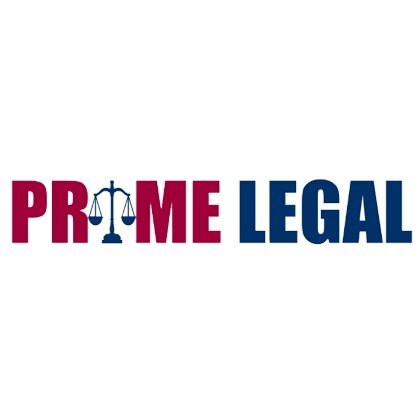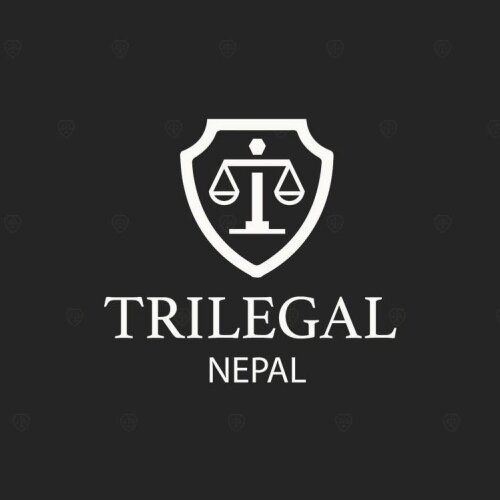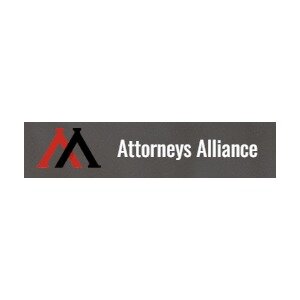Best Mining Law Lawyers in Kathmandu
Share your needs with us, get contacted by law firms.
Free. Takes 2 min.
List of the best lawyers in Kathmandu, Nepal
About Mining Law in Kathmandu, Nepal
Mining Law in Kathmandu, Nepal establishes the legal framework for the exploration, extraction, processing, and management of mineral resources within the country. Nepal is rich in a variety of mineral resources, including limestone, coal, magnesite, talc, iron ore, and precious stones. The Mining Law governs all aspects related to these resources, emphasizing sustainable development, environmental protection, and the rights and obligations of individuals and companies involved in mining activities. Key legislation includes the Mines and Minerals Act, Mining Regulations, and various directives issued by the Department of Mines and Geology (DMG).
Why You May Need a Lawyer
There are several situations in which it can be beneficial or necessary to consult a lawyer specializing in Mining Law in Kathmandu, Nepal. Some common scenarios include:
- Applying for exploration, prospecting, or mining licenses and permits
- Navigating lease agreements or negotiating joint ventures with local or international partners
- Addressing disputes regarding land ownership or land use where mining occurs
- Ensuring compliance with local environmental and safety regulations
- Managing community relations and resolving conflicts with affected communities
- Representing your interests before government authorities or in court proceedings
- Dealing with the transfer or assignment of mining rights
- Understanding and complying with royalty and tax obligations
- Protecting your mining operations against illegal mining or encroachment
- Advising on import or export regulations for minerals
Due to the complexities and frequent updates in mining legislation, expert legal advice can be critical to protect your rights and maintain compliant operations.
Local Laws Overview
Mining operations in Kathmandu are subject to both national and local regulations. The key laws and regulations include:
- Mines and Minerals Act, 2042 (1985): This Act is the cornerstone of mining legislation in Nepal. It outlines licensing procedures, rights, duties, and penalties. It distinguishes between various types of mineral licenses, such as prospecting, exploration, and mining.
- Mines and Minerals Rules, 2056 (1999): These rules provide detailed procedures for acquiring and maintaining licenses, operational requirements, and reporting obligations.
- Environmental Protection Act and Rules: Mining operations are subject to rigorous environmental assessment and management requirements, including the need for Environmental Impact Assessments (EIA) and Initial Environmental Examination (IEE) as per the Environmental Protection Act, 2019.
- Local Government Operations Act: With Nepal’s federal structure, local governments play a significant role in granting approvals and monitoring mining activities within their jurisdictions.
- Royalty and Fiscal Regulations: The law specifies how royalties on extracted minerals are calculated and collected, and details tax obligations for mining companies.
Compliance with these laws is strictly monitored. Non-compliance can result in fines, suspension, or revocation of mining rights.
Frequently Asked Questions
What types of minerals can be legally mined in Kathmandu, Nepal?
A wide range of minerals including limestone, marble, coal, talc, and precious stones can be legally mined with the appropriate licenses from the Department of Mines and Geology (DMG).
What permits are required to start mining in Kathmandu?
You must obtain a prospecting license, then an exploration license, and finally a mining license. Each license is issued by the DMG and is subject to thorough review and compliance checks.
How long does it take to obtain a mining license?
The process can take several months to over a year, depending on the completeness of your application, fulfillment of environmental assessments, and the volume of pending applications at the DMG.
What are the main environmental requirements for mining activities?
Mining operations must conduct Environmental Impact Assessments (EIA) or Initial Environmental Examinations (IEE) and implement mitigation measures to minimize harm to ecosystems and local communities.
Can foreigners own mining rights in Nepal?
Foreign companies can obtain mining licenses, usually through joint ventures with local partners, and must meet additional requirements as prescribed by Nepali law.
How are disputes over mining land resolved?
Disputes may be settled through negotiation, mediation, or by filing a case with the relevant court or administrative body. Lawyers can guide and represent parties throughout the process.
What are the penalties for illegal mining?
Penalties may include hefty fines, confiscation of equipment, cancellation of licenses, and criminal charges depending on the severity of the violation.
Do local communities have rights regarding mining operations?
Yes, local communities are entitled to consultation and may receive compensation for land use and environmental impacts. Community consent is essential, especially in sensitive areas.
Is it necessary to renew mining licenses?
Yes, licenses must be renewed periodically as per the terms and conditions specified in the Mines and Minerals Rules. Failure to renew can result in cancellation of mining rights.
Where can I access mining related legal documents and regulations?
You can access laws and regulations from the Department of Mines and Geology, the Ministry of Industry, Commerce and Supplies, and other governmental resources.
Additional Resources
Here are some government and organizational resources for those seeking more information or assistance with Mining Law in Kathmandu, Nepal:
- Department of Mines and Geology (DMG): The central authority for issuing mining licenses and overseeing mining activities.
- Ministry of Industry, Commerce and Supplies: Policies and regulations on industrial and commercial mining ventures.
- Federation of Nepalese Chambers of Commerce and Industry (FNCCI): Provides information and support for businesses operating in mining.
- Nepal Bar Association: Can refer you to qualified mining law practitioners.
- Environmental Protection Council: Oversight body for environmental compliance in large projects, including mining.
Next Steps
If you need legal assistance with Mining Law in Kathmandu, Nepal, here is how you can proceed:
- Gather all relevant documents such as maps, land ownership papers, prior correspondence with authorities, and any licenses or applications already submitted.
- Identify the specific legal area of concern, whether it is licensing, compliance, environmental impact, or dispute resolution.
- Consult a qualified lawyer who specializes in mining and natural resources law for a preliminary assessment of your situation.
- Prepare a list of questions and concerns to discuss with your lawyer for more effective consultation.
- If necessary, contact the Department of Mines and Geology or related government bodies for official guidance.
- Stay informed about updates in mining regulations that may affect your rights and responsibilities.
An experienced mining law specialist can help you navigate the regulatory landscape, ensure you remain in compliance, and protect your interests at every stage of the mining process.
Lawzana helps you find the best lawyers and law firms in Kathmandu through a curated and pre-screened list of qualified legal professionals. Our platform offers rankings and detailed profiles of attorneys and law firms, allowing you to compare based on practice areas, including Mining Law, experience, and client feedback.
Each profile includes a description of the firm's areas of practice, client reviews, team members and partners, year of establishment, spoken languages, office locations, contact information, social media presence, and any published articles or resources. Most firms on our platform speak English and are experienced in both local and international legal matters.
Get a quote from top-rated law firms in Kathmandu, Nepal — quickly, securely, and without unnecessary hassle.
Disclaimer:
The information provided on this page is for general informational purposes only and does not constitute legal advice. While we strive to ensure the accuracy and relevance of the content, legal information may change over time, and interpretations of the law can vary. You should always consult with a qualified legal professional for advice specific to your situation.
We disclaim all liability for actions taken or not taken based on the content of this page. If you believe any information is incorrect or outdated, please contact us, and we will review and update it where appropriate.

















